The principle of Synodality and communion is now, for the first time, being extended to other Christians who are non-Catholic, he said during the September 18 virtual event.
The emphasis on interreligious dialogues proposed in the preparatory document and handbook for the 2023 Synod released on September 7 underscores the need to journey with members of other religions, the Local Ordinary of Kenya’s Nakuru Diocese says.
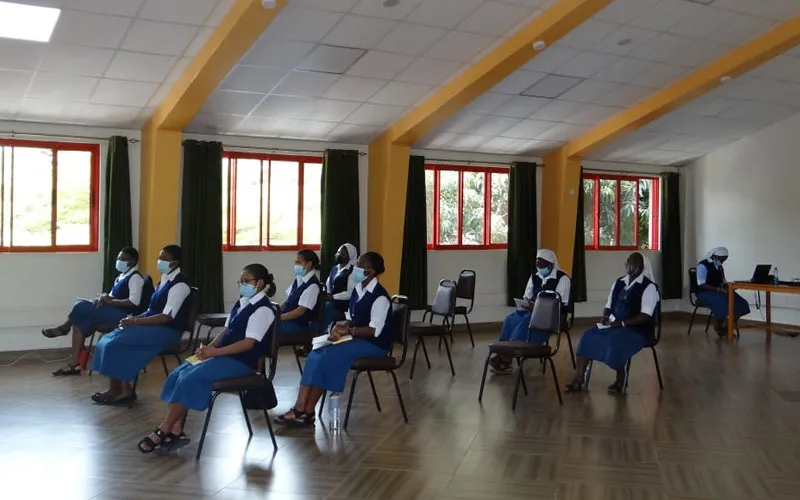 Credit: Sr. Olga Massango.
Credit: Sr. Olga Massango.
“It does not stop there,” Bishop Muhatia says in reference to the Synodal process, and explains, “It encourages extending our hand to those who don’t believe in God. Then the Church exists for everybody. It exists for those who are in the body of Christ and the society at large.”
He says that the preparatory document and handbook for the 2023 Synod are two important documents especially as the people approach the Diocesan phase of the Synodal process.
(Story continues below)
“The documents will enhance better participation and consultation of the Church at the Diocesan level and especially eventually at the conference level,” the KCCB official says.
The native of Kenya’s Kakamega Diocese explains that Bishops’ Conferences are expected to appoint teams of representatives to coordinate with the General Secretariat of the Synod of Bishops.
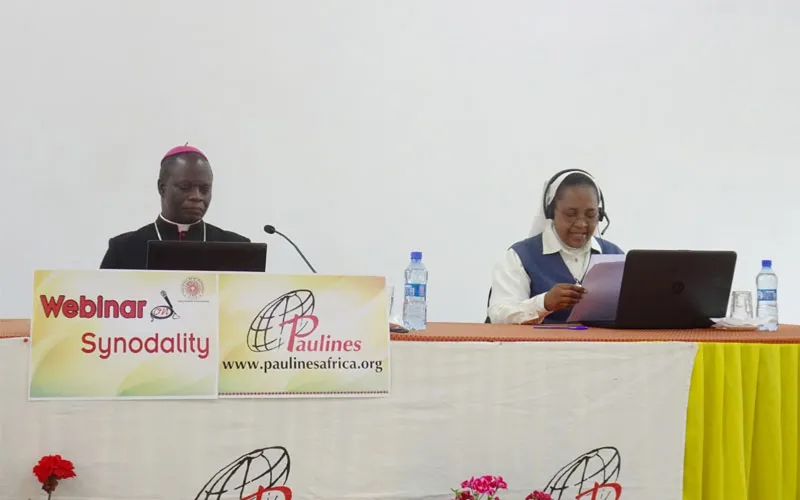 Credit: Sr. Olga Massango.
Credit: Sr. Olga Massango.
“Every person in the Diocese has to feel listened to in these consultations,” Bishop Muhatia says, adding that the materials from each Episcopal See will be collected and sent to the Secretariat of the Conference of Bishops who will make a synthesis of all generated views. He notes that at this stage, the Bishops will “listen to the people of God while listening to the scripture.”
Catholic Bishops will then send what they will have synthesized to the members of the General Secretariat of the Synod of the Bishops in Rome who, Bishop Muhatia, says will “meet to listen to what the Spirit will have inspired in the Churches entrusted to them.”
Upon receiving and reviewing all the materials from various conferences, the General Secretariat in Rome will draft the first working document of the Synod, which will be published and sent back to the particular Churches including the Episcopal Conferences and the Dioceses in September 2022.
The continental phase of the Synod is slated to start in September 2022 up to March 2023. Bishop Muhatia explains that the aim of this phase will be to engage in a dialogue with the first document of the Synod.
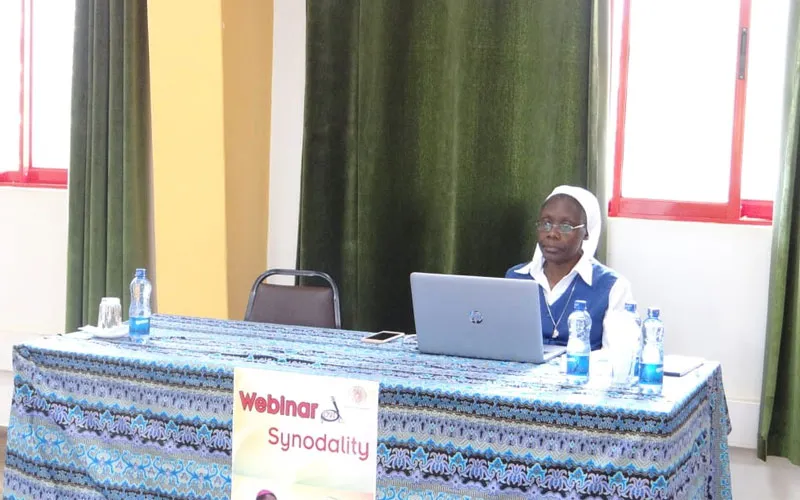 Credit: Sr. Olga Massango.
Credit: Sr. Olga Massango.
The document, the Kenyan Bishop explains, will be “richer because it has come from all corners of the world. It will have come from each and every one of us.”
Each continental group will then draft a final document, which will again be sent to Rome in March 2023.
In Africa, the continental group of the Catholic Church is the Symposium of Episcopal Conferences of Africa and Madagascar (SECAM), which has eight regional members, including the Association of Member Episcopal Conferences in Eastern Africa (AMECEA), the Inter-regional Meeting of the Bishops of Southern Africa (IMBISA), the Regional Episcopal Conferences of West Africa (RECOWA), and the Association of Episcopal Conferences of Central Africa Region (ACERAC).
Other regional Conferences of SECAM are the Association of Episcopal Conferences of Central Africa (ACEAC), the Assembly of the Catholic Hierarchy of Egypt (AHCE), the Regional Episcopal Conference of North Africa (CERNA), and the Episcopal Conferences of the Indian Ocean (CEDOI).
Based on the continental responses, the General Secretariat in Rome will be expected to draft a second document. This is expected to usher in the universal phase of the process, which will culminate in the October 2023 celebration of the General Assembly of Bishops in Rome.
Bishop Muhatia notes that with the Synod on Synodality, Pope Francis is proposing something that has always been his way of life.
“He (Pope Francis) is not proposing to us something that is out of his lifestyle,” the Kenyan Bishop says in the September 18 event, and adds, “The structures we want to see in the Church, the processes we want to see in the Church is something he himself has internalized and is inviting us to the same.”
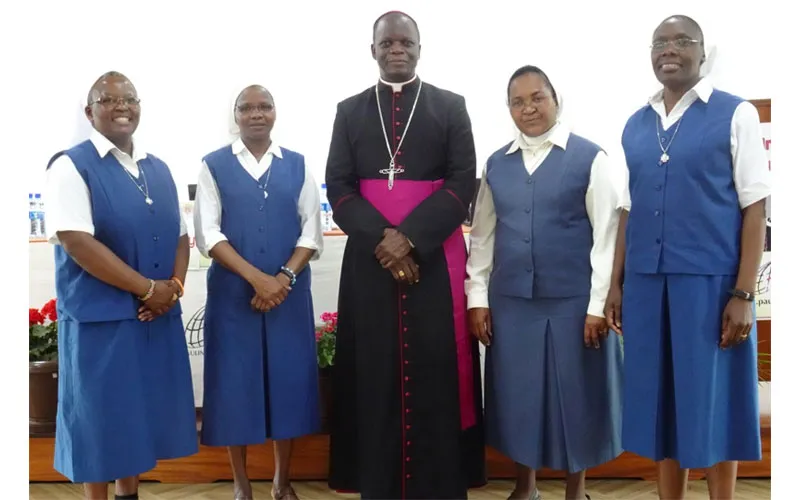 From left to right: Sr Beatrice Njau, Sr Rosemary Mwaiwa, Bishop Maurice Muhatia, Sr Olga Massango, Sr Helen Nekesa. Credit: Sr. Olga Massango.
From left to right: Sr Beatrice Njau, Sr Rosemary Mwaiwa, Bishop Maurice Muhatia, Sr Olga Massango, Sr Helen Nekesa. Credit: Sr. Olga Massango.
He makes reference to the theme of the synod, and poses, “The question that arises from the theme is how can we live communion, how can we achieve participation in order for us to be open to mission.”
The Catholic Bishop calls the people of God to reflect on how they are journeying together as a Synodal Church and in proclaiming the Gospel of Jesus Christ.
“Journeying together cannot age. Journeying together regenerates itself. If we grow together today, tomorrow we will have the desire to grow together, the demand to grow together,” Bishop Muhatia says.
Agnes Aineah is a Kenyan journalist with a background in digital and newspaper reporting. She holds a Master of Arts in Digital Journalism from the Aga Khan University, Graduate School of Media and Communications and a Bachelor's Degree in Linguistics, Media and Communications from Kenya's Moi University. Agnes currently serves as a journalist for ACI Africa.
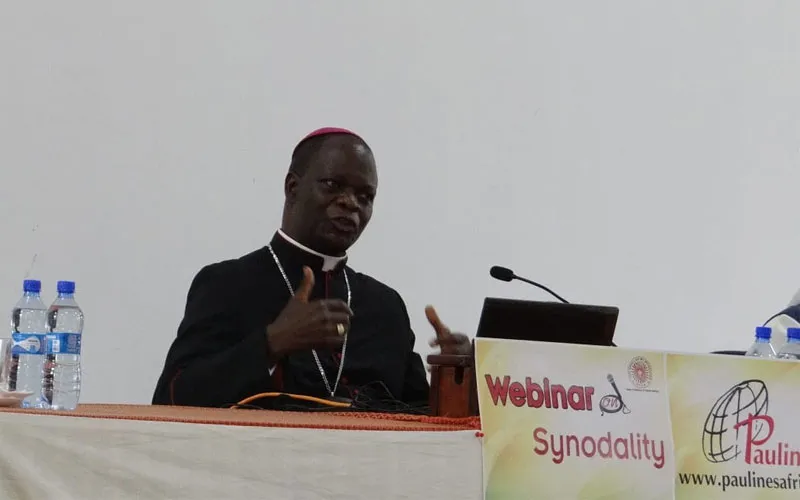 Bishop Maurice Muhatia. Credit: Sr. Olga Massango.
Bishop Maurice Muhatia. Credit: Sr. Olga Massango.


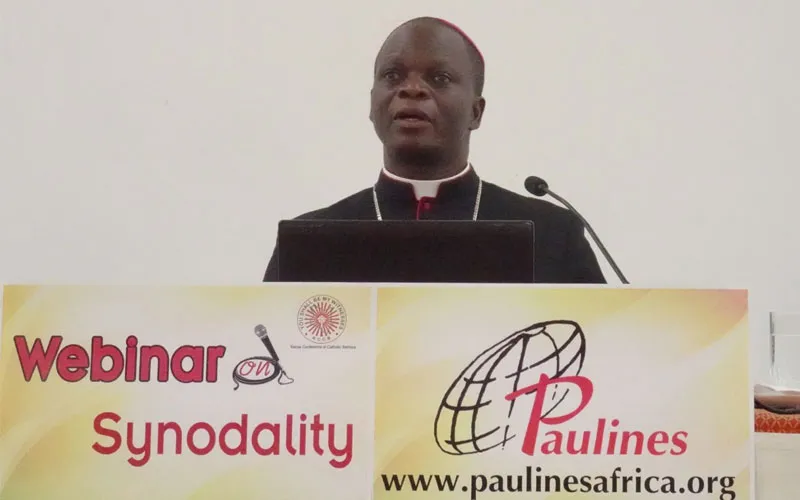
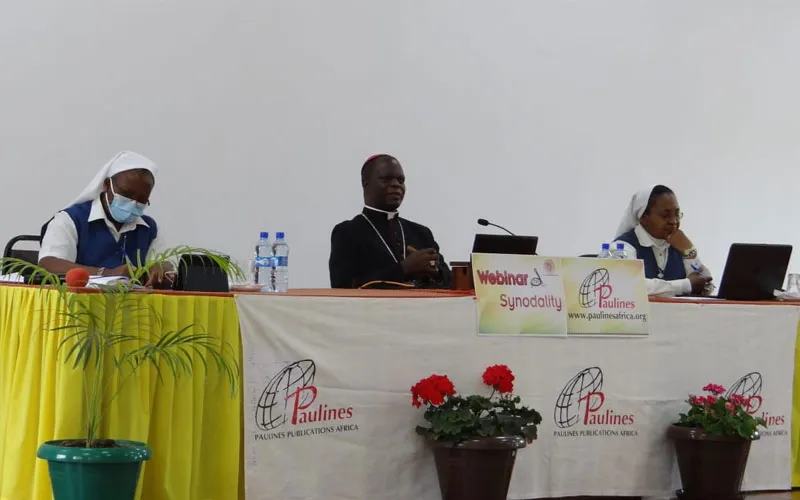 Credit: Sr. Olga Massango.
Credit: Sr. Olga Massango.
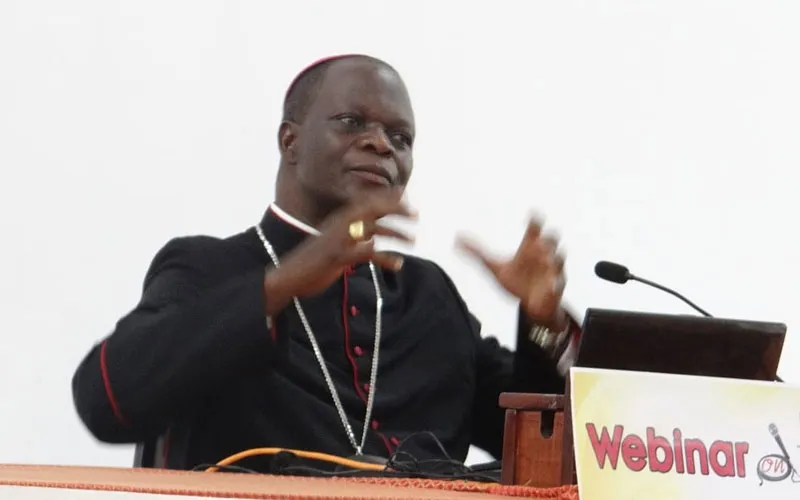 Credit: Sr. Olga Massango.
Credit: Sr. Olga Massango. Credit: Sr. Olga Massango.
Credit: Sr. Olga Massango. Credit: Sr. Olga Massango.
Credit: Sr. Olga Massango. Credit: Sr. Olga Massango.
Credit: Sr. Olga Massango. From left to right: Sr Beatrice Njau, Sr Rosemary Mwaiwa, Bishop Maurice Muhatia, Sr Olga Massango, Sr Helen Nekesa. Credit: Sr. Olga Massango.
From left to right: Sr Beatrice Njau, Sr Rosemary Mwaiwa, Bishop Maurice Muhatia, Sr Olga Massango, Sr Helen Nekesa. Credit: Sr. Olga Massango.


